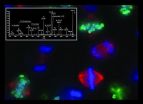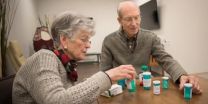(Press-News.org) Although there is widespread consensus among the scientific community that the composition of generic drugs is identical to that of brand name drugs, this is not the case among the public. In a four-year study of over 3,000 opinions on Spanish web pages, researchers at the National University of Distance Education (UNED) of Spain have identified communication strategies aimed at creating risk perceptions about generic drugs, which may influence the low usage of these drugs.
Generic drugs, which are copies of brand name drugs whose patent has expired, have exactly the same composition, quality, effectiveness and safety as their brand-name counterparts since they share the same active ingredient. Although generic drugs came on the market in Spain in 1997, they were not widely prescribed until 2004. In recent years, generic drugs have been used as a strategy to ensure the financial sustainability of the national health care system and the competitiveness of the pharmaceutical market. However, the consumption rate of these drugs is much lower in Spain than in other countries of the European Union.
According to the Annual Report on the Development of Generic Drugs in Spain (2013), the market share in units of generic drugs in the country stands at 36% compared to 60% in Europe. Researchers at the National University of Distance Education (UNED) have studied the climate of opinion on these drugs in a scenario where opinions are rapidly disseminated: the Internet.
"In analyzing the social image of generic drugs on the Internet, we have detected an explicit communication strategy with a clear objective: to create risk perceptions and discourage their social acceptability," Miguel del Fresno, head author of the study and professor of social work at the UNED, explained.
The research study, published in Qualitative Social Work, analyzed references from 2009 to 2012 from various Internet channels, including the media, blogs, forums and opinion aggregators. The search was restricted to web pages in Spain using the Spanish equivalent of the keywords 'generics', 'generic drugs', and 'generic medicines', as well as 'EFG drug', EFG and EFG's (the Spanish acronym for generic pharmaceutical products).
Of the initial 213,794 references collected, the researchers selected 551 after filtering out false positives and performing a simple random sampling. From these references, they were able to identify a total of 3,692 opinions on generic drugs.
Risks and unfounded confusion
One trend observed by the experts was that brand-name drug laboratories referred to their products as 'innovative drugs' in clear opposition to generics. Antonio Lopez, co-author of the study and professor of social work and social services at the UNED, said that "what was surprising was that generics laboratories and medical practitioners also used this linguistic framework, which fosters the positive perception of branded drugs at the expense of generics".
In terms of the risks associated with generics, the study reveals that there are numerous publications on the potential adverse health effects or lack of therapeutic efficacy of generic drugs versus brand name drugs, something that has never been proven. In this line, experts warn of a widespread debate on the Internet which claims that the physical attributes of generic drugs increase their potential health risks, since patients – especially those who are older or less educated – may be confused by differences in packaging and appearance, such as shape, size and color, thus increasing the likelihood that these patients will stop treatment. "If this problem does indeed exist, it was first caused by branded drugs," del Fresno pointed out.
In contrast to these negative perceptions, however, the study also shows that a more positive attitude towards generics began to emerge in late 2012. According to the expert, this 'positive discrimination' towards generics was "related to several royal decrees that allowed physicians to prescribe drugs according to their active ingredient and pharmacists to substitute brand-name drugs for generic drugs, which has led to large cost savings for the national health care system".
A worrying picture
In view of these results, "it is clear that climates of opinion influence our behavior. Nonetheless, our research does not support a causal link, but a correlation between communication campaigns to curb the social acceptability of generics and the acceptance of these drugs," the sociologist said.
In this regard, the experts claim that even though there is clear consensus in the scientific community in terms of the safety, quality, effectiveness and bioequivalence of generic drugs, there is no agreement among society, which has led to a war of cultures based on a pseudo-debate.
The study concludes that the analysis of online opinion climates paints a worrying picture as these opinions seek to curb the social normalization of generic drugs by equating them with risks so that consumers will reject them.
In order to not fuel this negative climate of opinion, experts recommend using the terms 'generic drugs' and 'brand name drugs' as occurs in the United States. According to López, experts propose designing group dynamics in the social work field "in which the collective representation of generics is analyzed and strategies for scientific and technological literacy are developed".
The research findings could be extrapolated to Latin America, where generic drug markets have low penetration rates, and the communication strategies to discredit them are similar to those of Spain. According to del Fresno, "everything indicates that the same arguments are used in Spain [and Latin America] to create the perception of risk among people and specialists regarding these drugs".
INFORMATION:
Reference: Miguel del Fresno García and Antonio López Peláez. "Social work and netnography: The case of Spain and generic drugs". Qualitative Social Work: Research and Practice 2014, 13 (1). DOI: 10.1177/1473325013507736.
Strategies on the Internet to discredit generic drugs
2014-03-06
ELSE PRESS RELEASES FROM THIS DATE:
New research could help make 'roll-up' digital screens a reality for all
2014-03-06
Researchers from the University of Surrey worked together with scientists from Philips to further develop the 'Source-Gated-Transistor' (SGT) - a simple circuit component invented jointly by the teams.
Previously, they found that the component could be applied to many electronic designs of an analog nature, such as display screens. Through this current study, researchers have now shown that SGTs can also be applied to next-generation digital circuits.
SGTs control the electric current as it enters a semiconductor, which decreases the odds of circuit malfunction, improves ...
Researchers capture 'most complete' picture of gene expression in cancer cell cycle
2014-03-06
Uncontrolled cell growth and division is a hallmark of cancer. Now a research project led by the University of Dundee has provided the most complete description to date of the gene activity which takes place as human cells divide.
Researchers have managed to gather data which details the behaviour of protein molecules encoded by over 6000 genes in cancer cells, as they move through the cell cycle. The team has used advances in technology and data analysis to study how genes work over time in cancer cells, as opposed to capturing a `snapshot' of activity – a leap forward ...
Sudden cardiac death: Genetic disease ARVC more common than hitherto assumed
2014-03-06
The genetic disease ARVC leads to sudden cardiac death and is more common than it has been hitherto assumed. This is reported by an international team of researchers headed by Prof Dr Hendrik Milting from the Heart and Diabetes Center NRW in the "European Heart Journal". The molecular biologist working at the Ruhr-Universität's clinic in Bad Oeynhausen revealed that all families who are known to be affected by the disease share the same genetic origin. There must be other families in Europe who also carry the genetic mutation but who are not yet known.
Mutation initially ...
Study suggests higher levels of omega-3 in diet are associated with better sleep
2014-03-06
A randomised placebo-controlled study by the University of Oxford suggests that higher levels of omega-3 DHA, the group of long-chain fatty acids found in algae and seafood, are associated with better sleep. The researchers explored whether 16 weeks of daily 600 mg supplements of algal sources would improve the sleep of 362 children. The children who took part in the study were not selected for sleep problems, but were all struggling readers at a mainstream primary school. At the outset, the parents filled in a child sleep questionnaire, which revealed that four in ten ...
When art and science collide -- the masterpiece unmasked
2014-03-06
This news release is available in French. Gallery owners, private collectors, conservators, museums and art dealers face many problems in protecting and evaluating their collections such as determining origin, authenticity and discovery of forgery, as well as conservation issues. Today these problems are more accurately addressed through the application of modern, non-destructive, "hi-tech" techniques.
Dmitry Gavrilov, a PhD student in the Department of Physics at the University of Windsor (Windsor, Canada), along with Dr. Roman Gr. Maev, the Department of Physics ...
Half the survivors in 1 Japanese town have PTSD symptoms
2014-03-06
Though just two of Hirono's 5,418 residents lost their lives in Japan's mega-earthquake and tsunami, a new study shows that the survivors are struggling to keep their sanity.
One year after the quake, Brigham Young University professor Niwako Yamawaki and scholars from Saga University evaluated the mental health of 241 Hirono citizens. More than half of the people evaluated experienced "clinically concerning" symptoms of post-traumatic stress disorder. Two-thirds of the sample reported symptoms of depression.
Those rates exceed levels seen in the aftermath of other ...
Heart failure unknowns a roadblock to managing health
2014-03-06
Al Brommeland found a true partner in his wife Florence. Through 57 years of marriage they've proved a formidable team, swinging and bowing at square dances, kicking up dust in their clogs, and now in their golden years, taking daily strolls side by side.
When Al started experiencing irregular heart rhythm 12 years ago, the couple worked together to stay healthy. It hasn't been easy, both in terms of symptoms—emergency doctors stopped and restarted Al's heart eight times over the years—or finding answers to their questions about how to best manage his illness, recently ...
UCLA engineering team increases power efficiency for future computer processors
2014-03-06
Have you ever wondered why your laptop or smartphone feels warm when you're using it? That heat is a byproduct of the microprocessors in your device using electric current to power computer processing functions — and it is actually wasted energy.
Now, a team led by researchers from the UCLA Henry Samueli School of Engineering and Applied Science has made major improvements in computer processing using an emerging class of magnetic materials called "multiferroics," and these advances could make future devices far more energy-efficient than current technologies. ...
LSUHSC mental health care model reduced symptoms in those most affected by BP oil spill
2014-03-06
New Orleans, LA – A model of care developed by the Department of Psychiatry at LSU Health Sciences Center New Orleans School of Medicine to provide mental health services after the Deepwater Horizon Gulf Oil Spill reduced both mental health and general medical symptoms. The novel approach embedded psychiatrists, psychologists, social workers and telemedicine resources into primary care clinics in the most affected areas. This new model can be used in communities at risk for disasters and rural communities with limited mental health resources. The initiative is featured ...
Collecting digital user data without invading privacy
2014-03-06
This news release is available in German.
The statistical evaluation of digital user data is of vital importance for analyzing trends. But it can also undermine the privacy. Computer scientists from Saarbrücken have now developed a novel cryptographic method that makes it possible to collect data and protect the privacy of the user at the same time. They present their approach for the first time at the computer expo CeBIT in Hannover at the Saarland University research booth (hall 9, booth E13).
"Many website providers are able to collect data, but only a few manage ...



